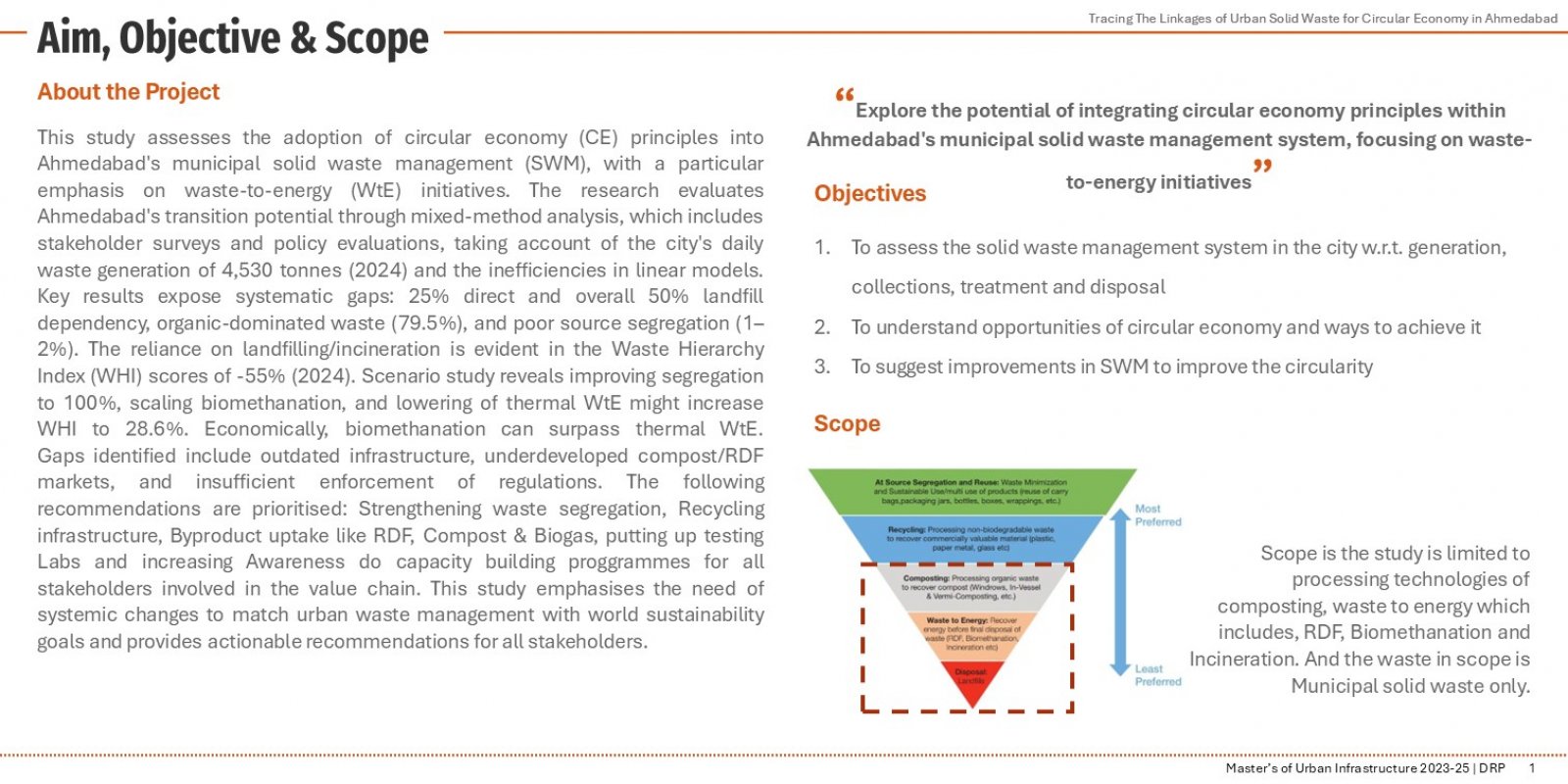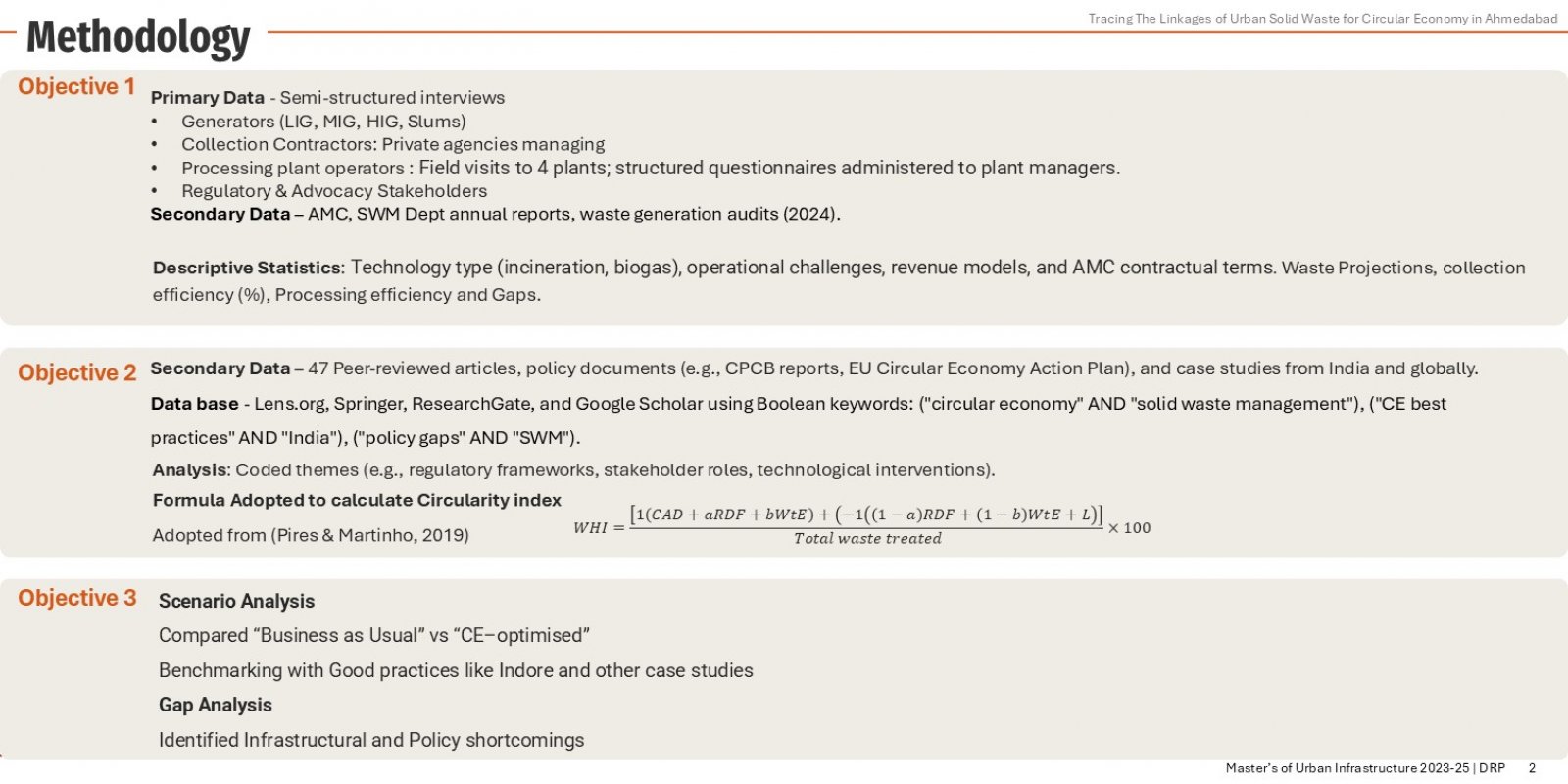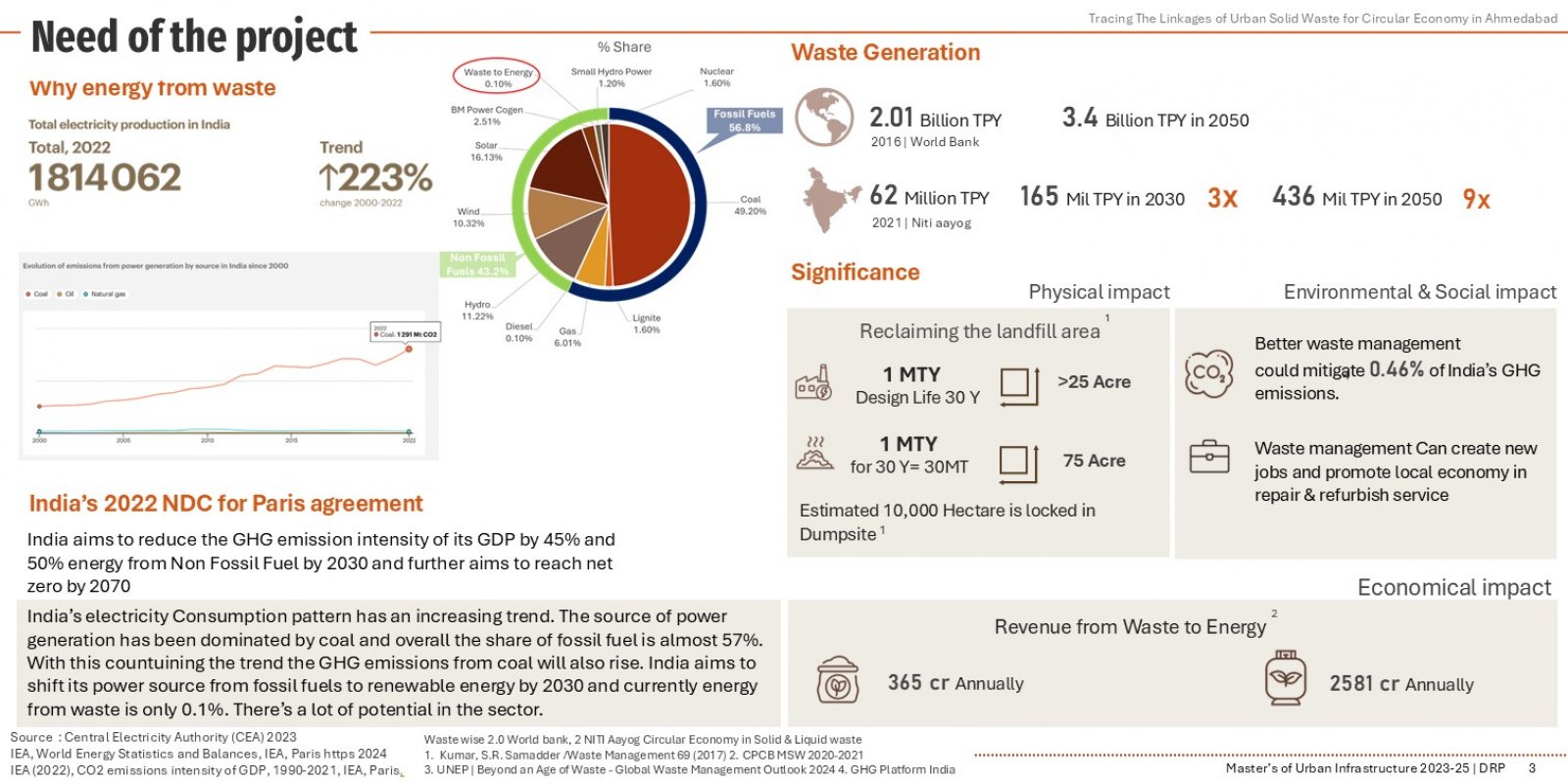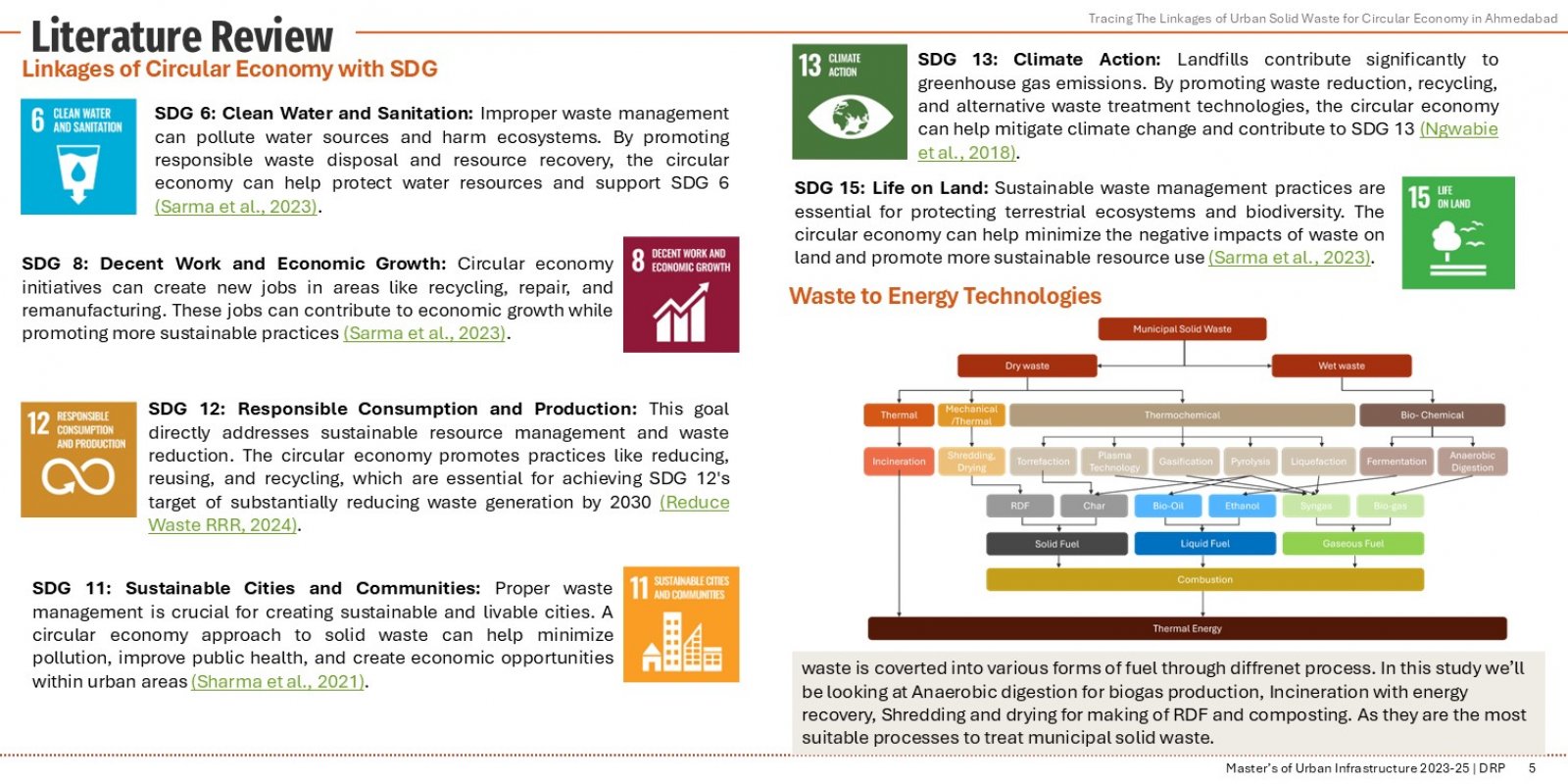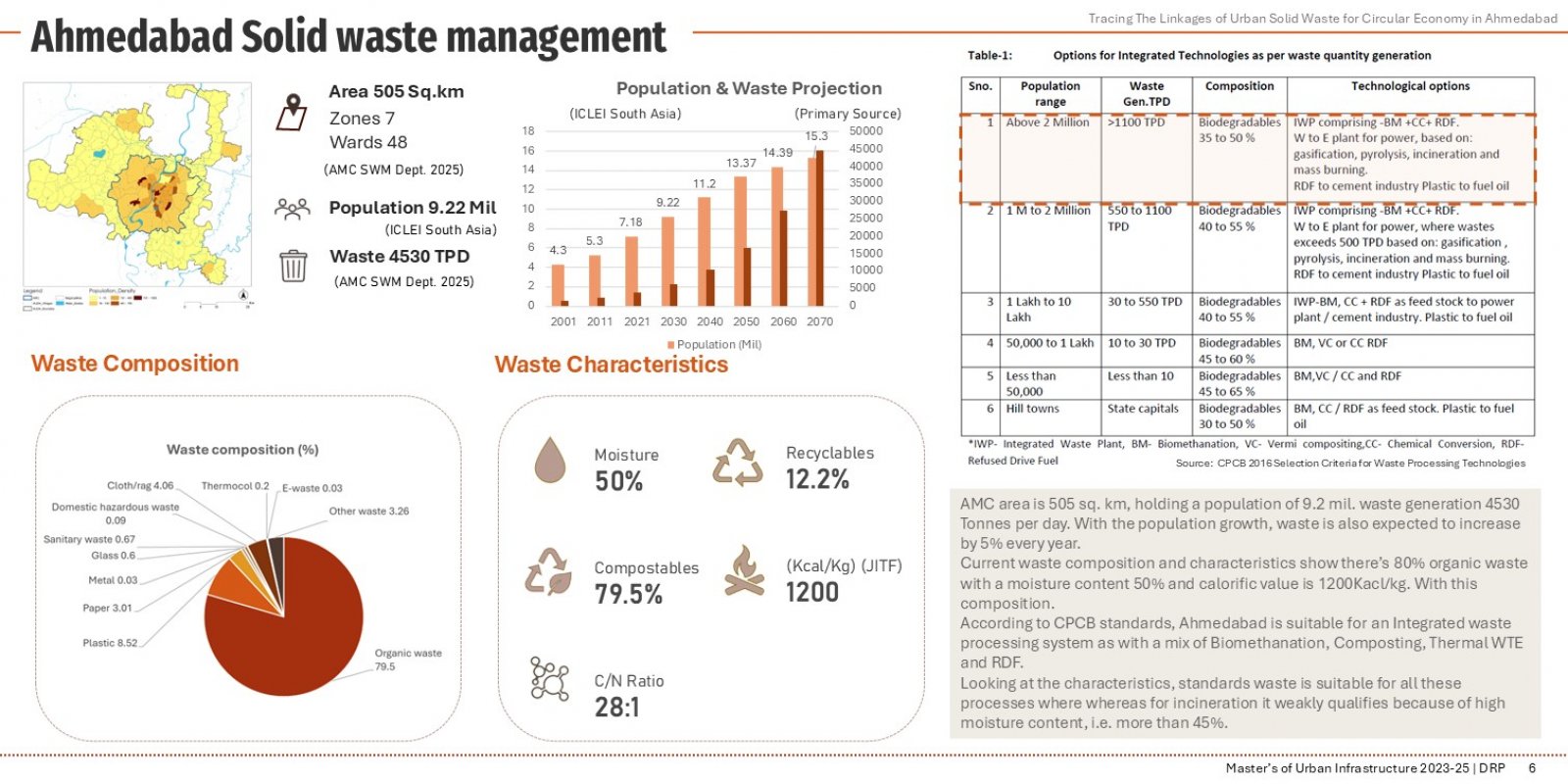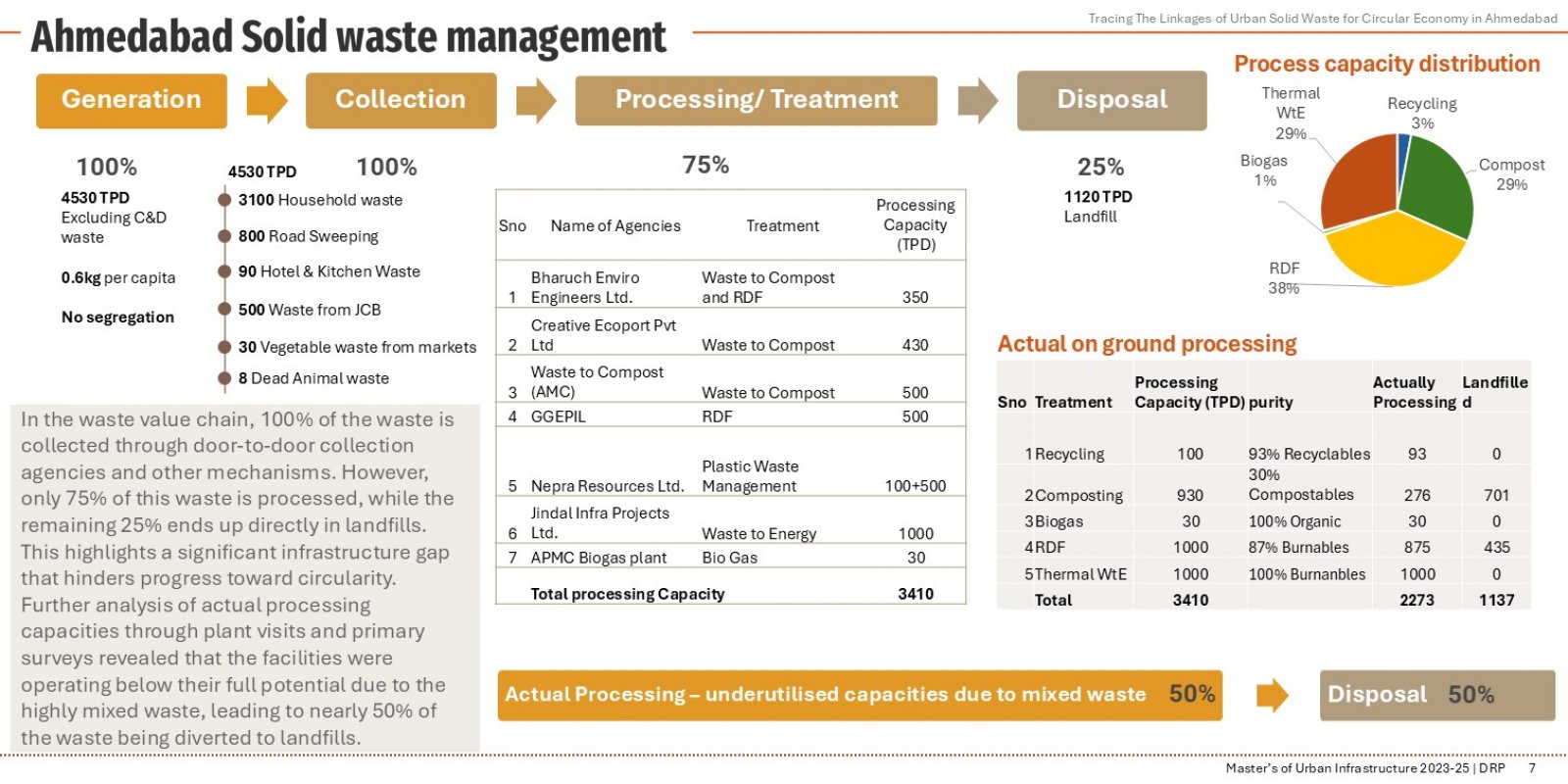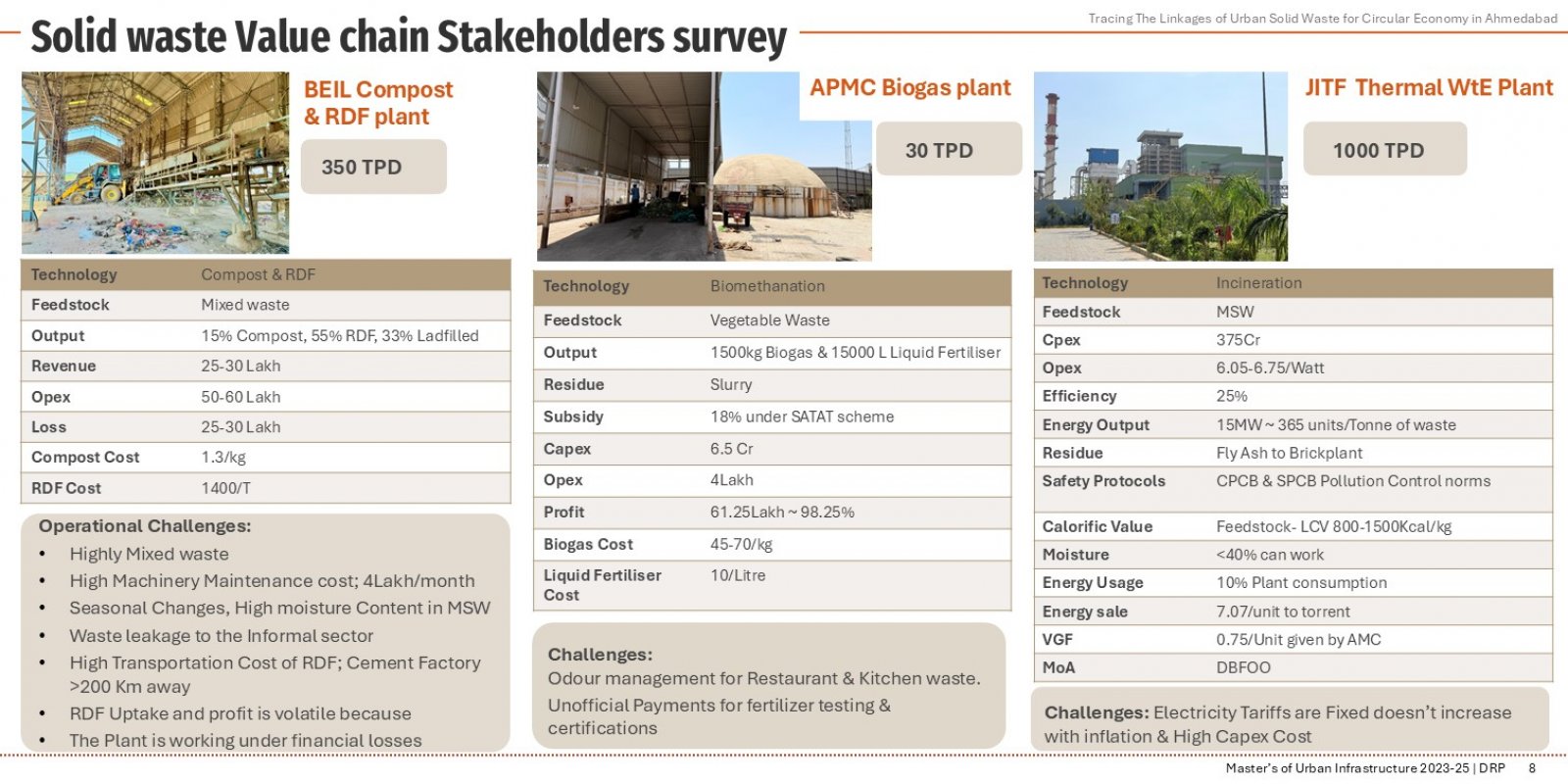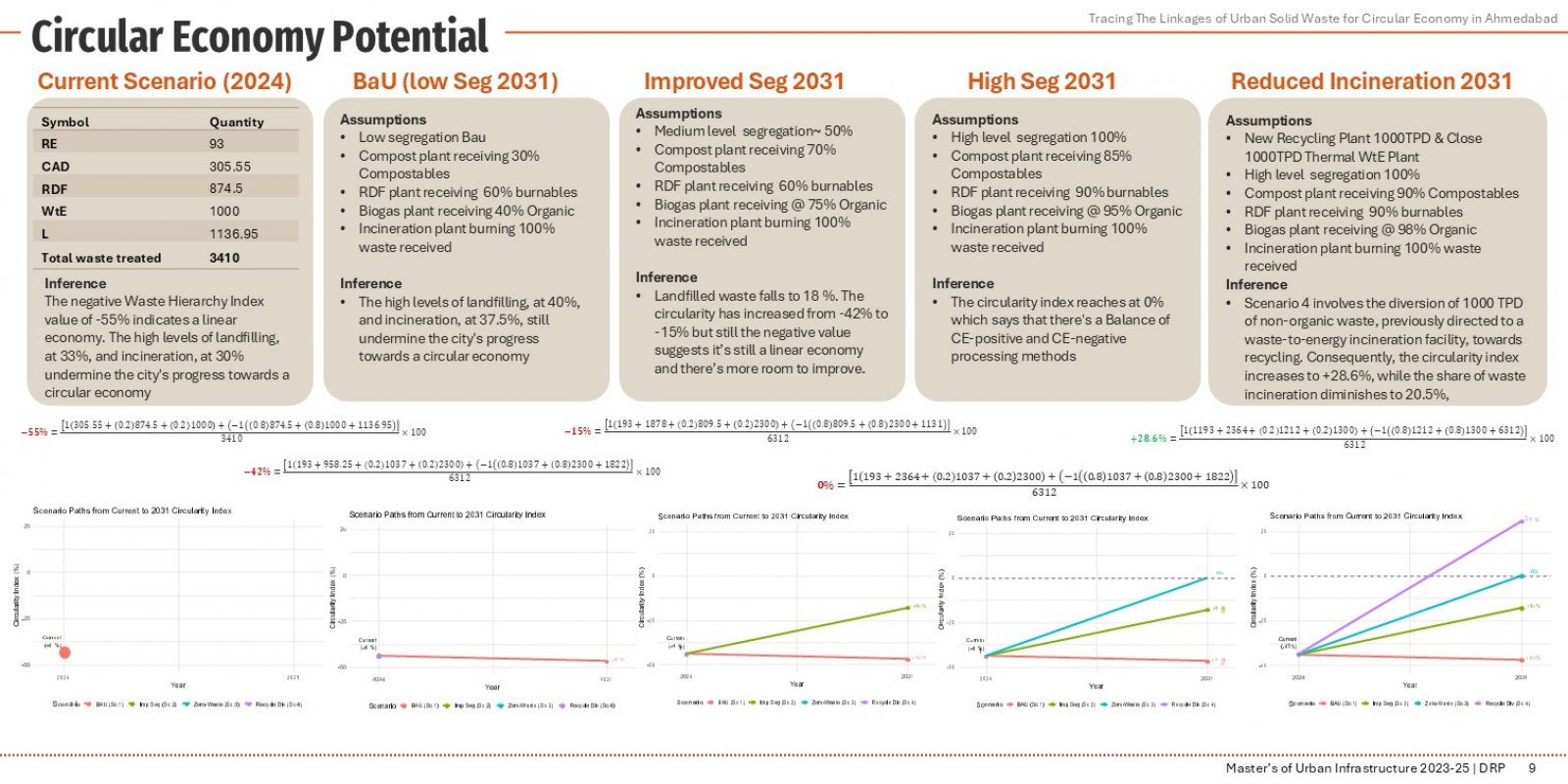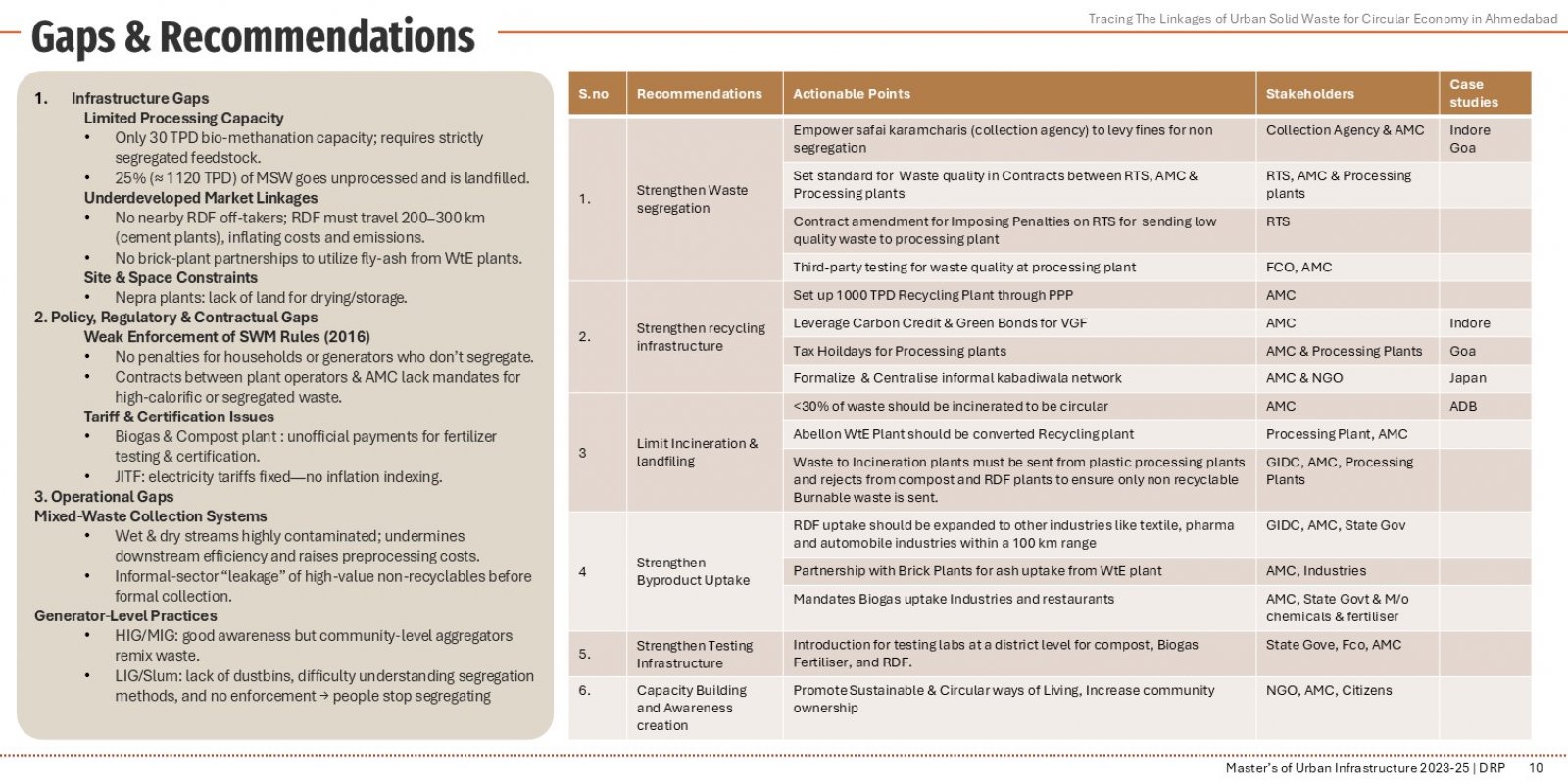Your browser is out-of-date!
For a richer surfing experience on our website, please update your browser. Update my browser now!
For a richer surfing experience on our website, please update your browser. Update my browser now!
This study examines the integration of circular economy (CE) principles into Ahmedabad’s municipal solid waste management (SWM), focusing on waste-to-energy (WtE) approaches. With 4,530 tonnes of daily waste generation (2024), findings reveal major inefficiencies: 50% landfill dependency, low segregation (1–2%), and organic-heavy waste (79.5%). The Waste Hierarchy Index (WHI) stands at -55%, indicating over-reliance on landfilling/incineration. Scenario analysis shows WHI can reach 28.6% through 100% segregation, biomethanation, and reduced thermal WtE. Biomethanation proves more economical. Key gaps include poor infrastructure, weak enforcement, and limited markets. The study recommends improved segregation, recycling, byproduct use, testing labs, and stakeholder capacity building for systemic reform.
